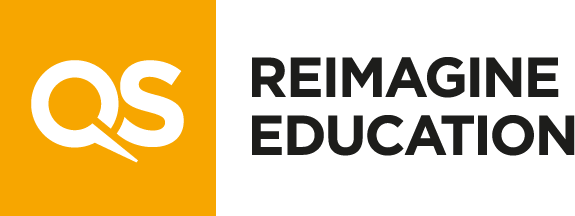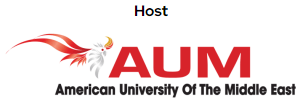MORE RELEVANT BOOKS. MORE ENGAGED READING.
EDITORIAL OVERVIEW – ISSUE 18
Sally Parrott is a Learning Management System champion at Australia’s RMIT University. RMIT University’s ‘Global Grads’ program was selected by Reimagine’s panel of internal and external judges as the Nurturing Employability Award Gold Winner last December. To find out more about the program, visit http://www.reimagine-education.com/nurturing-employability-2018-award-winners/.

In the current global, digital age an increasing number of businesses are communicating and working in large, geographically dispersed project teams referred to as global, virtual teams (GVT’s). This style of working is projected to increase by 50% by 2020 (Pricewaterhouse Coopers 2013) resulting in a potential shortfall of 85 million globally qualified workers by 2020 (Dobbs et al., 2012).
Developing the skills to work globally, (mastering intercultural communication, information communication technology and working in GVT’s), has been recognised by business, governments and education as crucial for economic and employment stability (Davies et al 2011). As a result, government and education have stated that preparing young people for the global economy and developing their global, social awareness and capacities are top priorities (Murray, 2014).
Universities have traditionally developed global skills through study abroad/student exchange however, there is inequity in accessibility and limits to scalability for exchange. Furthermore, exchange does not develop sought after technological skills or assist graduates to acquire in-demand global, virtual teamwork skills.
Going global
One solution to this challenge has been taking shape at RMIT University in Melbourne, Australia since 2012. Locally termed, Global, Virtual Work Integrated Learning (WIL), this experiential, international learning approach was established to develop graduates’ global competency and online business communication skills in a format that reflected real-world business practice. Global, virtual WIL brings tertiary students from multiple countries and time zones together in global, virtual teams to solve a real-life business problem for a multi-national client. Students’ use a range of online business communication technologies to collaboratively develop a solution according to requirements set by the client. Global, virtual WIL culminates with international teams coming together to present their solutions on line to the client or, on some occasions, to present live to the client in their country.
Technology plays a pivotal role in making this international learning approach accessible and scalable. Global, virtual WIL can be conducted entirely over computers thus removing timely and costly travel requirements. This cost neutral, “virtual-mobility” approach provides a more inclusive alternative for people with disabilities and for those who cannot travel. Global, virtual WIL is also more scalable than traditional study tours and student exchange programmes with few restrictions on the number of students who wish to develop global skills using the virtual environment.
The utilisation of current information communication technologies to communicate with international team members provides relevant skills that prepares graduates for cross-cultural, virtual collaboration and socially responsible careers in a global age (Coryell, Spencer & Sehin 2013).
Developing authentic, relevant skills is the foundation of global, virtual WIL which applies the authentic learning framework (Herrington and Oliver 2000) to replicate how global business operates. In keeping with authentic learning, global, virtual WIL harnesses emerging digital technologies utilised by business to ensure graduates emerge with the most current, applicable global business skills. Technology platforms employed include Google Hangouts and YouTube Live for video recorded meetings, Google Docs for live documentation collaboration, Trello for project management, Google Forms and Survey Monkey for planning and research, Facebook Messenger for live chat updates, Snapchat for team socialisation, Google Sites for learning management and assessment, Prezi and Keynote for presentations. The aim is for students to use all the information communication tools that businesses use when they operate in global, virtual teams to ensure they develop in-demand, current, global working skills.
Outcomes and reflections
Global virtual WIL provides an experiential learning experience for students and teachers alike who both benefit from developing intercultural communication skills as they coordinate projects with international student and faculty team members. An online survey has been distributed to students who participated in a global, virtual WIL for the past three years (2015-17) to capture the learning outcomes and experience. 130 respondents from four countries have revealed that they found global, virtual WIL challenging (73%), intercultural (40%) and educational (38%). They have also described it as frustrating (34%) which is perhaps due to challenges they have identified such as; managing contributions (40%), working across time zones (39%), working online in global, virtual Teams (36%) and working with other cultures (35%). However, working through these challenges has brought rewards as participants identified they developed the ability to work across time zones (65%), the skills to conduct video conference meetings (45%) and to communicate interculturally (36%). They also learnt how to collaborate in Google Docs (36%) and developed e-leadership abilities.
Learning outcomes are further captured in qualitative commentary collected from surveys and reflections at the conclusion of each global, virtual WIL project. The commentary identifies the global employability skills students develop:
“I have learnt how to manage people in 3 different time zones, how to work in a team more efficiently and effectively and how to more effectively use technology on a business scale.”
“I have learned the most about our cultural differences and how you need to be open to everyone’s opinions and mindsets…”
“…we all gained valuable experience and a great reference that we can use when applying for jobs in the future.”
“I’ve become more accepting of others, gained better leadership skills and a better insight of what it’s like to work/live in another country.”
“I learned how to work with people from different cultures and I learned how to voice my ideas in a clear way, as well as managing meeting times and coming to compromises.”
There are also learning outcomes recorded from academics and clients:
“their presentations are honestly better than global professional agencies’ ones in Vietnam,” (2017 client)
“you learn and grow technologically, improve your global competence and learn about what students need to grow as well,” (2017 academic).
A (more) global future: next steps
This feedback is used continuously through the Action Research cycle which is applied to global, virtual WIL. Each cycle has resulted in a redesign which has prompted increasing student participation, building student understanding of the challenges of working in globally located teams, and early development of skills required for using digital communications technology to communicate effectively on global business issues. Timely improvements have been made by accessing emerging technologies that have advanced the way global, virtual teams operate and how intercultural communication is achieved. Research conducted for a Higher Degree by Research has also contributed to improving the experiential learning approaches taken and feedback from stakeholders.
There is no mechanism in place to gather empirical evidence of employment gained as a direct result of participation in a GVW, however anecdotal evidence gained through discussions with graduates indicate that their participation in a global, virtual WIL has been well received in job interviews, applications for further study and internships. Data being currently analysed for the applicants’ HDR thesis is also indicating that the authenticity of the global, virtual WIL learning experience is highly valued as an employability skill.
Global Virtual WIL continues to expand its numbers and reach every year. From its beginning as a two-way project in 2011between 30 students at RMIT University, Australia and 30 students at Kirkwood Community College, USA it has grown to include six institutes, five countries and four time zones and close to 800 students have participated. RMIT University has a goal to have 20% of students undertaking an international learning experience by 2020 and global, virtual WIL is on track to help contribute to that growth.
It is now well documented that universities need to consider innovative approaches to provide more students with global learning opportunities (Clark, Flaherty, Wright, & McMillen, 2009; Leask, 2008; Poindexter, Amtmann, & Ferrarini, 2011). Whilst many approaches have been developed to connect students internationally to build global skills, it is the required authentic client/ WIL component of global, virtual WIL that contributes to cognitive skills development (Herrington & Oliver, 2000) to provide legitimate global business employability skills. And this could well be the factor that helps address the potential shortfall of 85 million globally qualified workers by 2020 (Dobbs et al., 2012).

